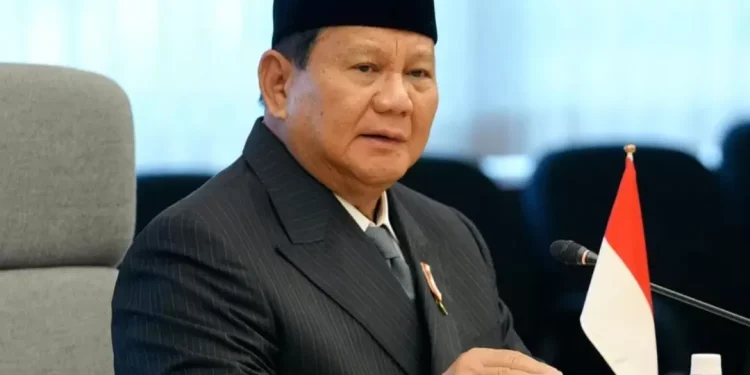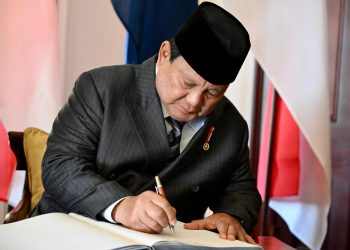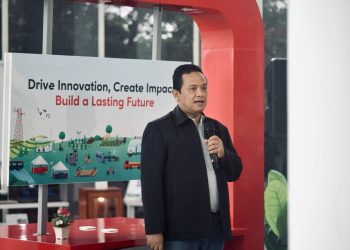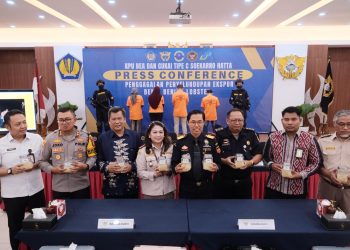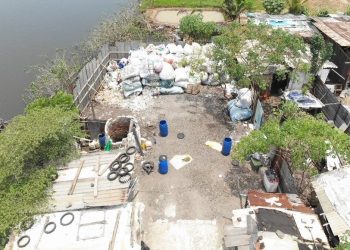Jakarta, Indonesia Sentinel — President Prabowo Subianto has proposed a controversial approach to combating corruption in Indonesia: granting amnesty to corrupt officials who voluntarily return stolen public funds. Speaking to Indonesian students at Al-Azhar University in Egypt, Prabowo outlined his plan to offer leniency to corrupt individuals willing to repent.
“To those who have stolen from the people: return what you’ve taken, and we may forgive you,” Prabowo stated in a speech broadcast on the Secretariat President’s YouTube channel on Thursday, December 19, 2024. He emphasized the possibility of discreetly returning embezzled funds, urging wrongdoers to make restitution without fear of public scrutiny.
The proposal includes extending this principle to entities that have benefited from state facilities. Prabowo assured that no past wrongdoings would be revisited if they fulfilled their obligations and adhered to the law.
Mixed Reactions to the Proposal
The proposal has drawn mixed reactions from experts and anti-corruption activists. Boyamin Saiman, coordinator of the Indonesian Anti-Corruption Community (MAKI), questioned the plan’s feasibility. He highlighted the sophisticated nature of modern corruption and expressed skepticism about corrupt officials voluntarily returning stolen funds.
“Even those under legal prosecution often deny wrongdoing. Expecting voluntary confessions and restitution seems highly unlikely,” Boyamin said on Friday, December 20.
While Boyamin acknowledged that the strategy could legally be implemented, he noted that it would require careful consideration to ensure effectiveness. He referred to Indonesia’s Anti-Corruption Law, which permits the return of state losses without necessarily absolving criminal charges.
Legal and Practical Challenges
Boyamin cited Article 4 of Indonesia’s Law No. 31 of 1999 on the Eradication of Corruption, which states that returning state losses does not eliminate criminal liability. However, the president could use prosecutorial discretion to halt legal proceedings in certain cases.
“Corruption often involves intent and malice, but in cases involving procedural errors or civil liabilities, restitution could suffice,” Boyamin explained.
Former Corruption Eradication Commission (KPK) investigator Yudi Purnomo Harahap viewed Prabowo’s proposal as a creative idea amid the current stagnation in anti-corruption efforts. He suggested that granting conditional amnesty, coupled with penalties, might offer a viable solution.
“For this to work, corrupt officials must admit their crimes, expose larger corruption networks, and meet stringent conditions. Those who fail to comply or relapse into corruption should face severe consequences,” Yudi stated.
Broader Implications and Recommendations
Yudi emphasized the need for legal frameworks to support the initiative, noting that the existing laws do not permit the forgiveness of criminal liability upon returning stolen funds. He also called for safeguards to prevent dishonest declarations and ensure transparency in the classification of corrupt individuals.
“Without strong legal and technical regulations, the initiative risks failure. Corrupt officials could underreport their crimes, undermining the program’s objectives,” he warned.
Yudi also highlighted systemic issues in Indonesia’s corruption eradication efforts, including lenient sentences, remission of prison terms, and the absence of asset forfeiture laws. He called for reforms in bureaucracy and digital systems to address low integrity among public officials.
Post AI-Generated Content, Indonesian Vice President Gibran Draws Criticism
Public Sentiment and Future Steps
Prabowo’s proposal has sparked widespread debate in Indonesia. Supporters view it as a pragmatic way to recover stolen funds and reduce legal costs, while critics argue it could undermine efforts to deter corruption by allowing impunity.
For the plan to succeed, legal experts suggest creating a comprehensive amnesty framework with clear guidelines and consequences for non-compliance. Additionally, the government must ensure transparency and accountability to restore public trust in anti-corruption initiatives.
As Indonesia continues its battle against endemic corruption, Prabowo’s bold proposal presents a unique opportunity for dialogue and potential reform. Whether it will lead to meaningful change remains to be seen.
(Becky)


